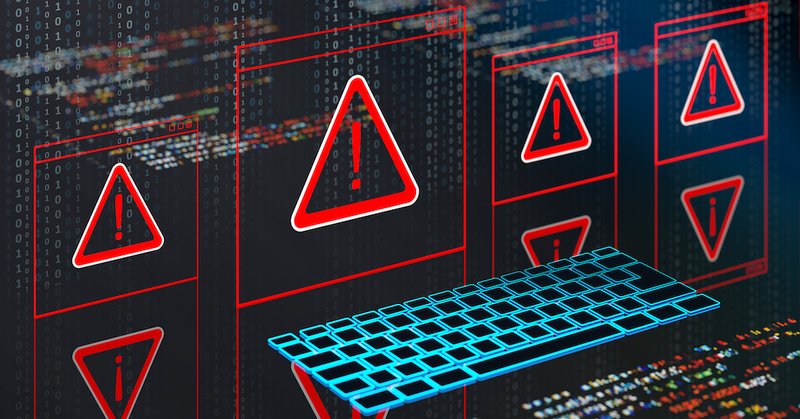
Chase Snyder
@ChaseInfosec
Followers
20
Following
66
Media
16
Statuses
84
Starting a new account for #Cybersecurity. I help complex B2B technology companies tell other people what they do, so those people can decide whether to buy.
Joined June 2023
Every time I see myself on the pod I'm like "gotta move that plant" and then I don't.
Unfortunately, discovering AMI MegaRAC firmware vulnerabilities in your environment is way harder than just doing a version check. Different vendors use different versioning, customized UIs, and more. Here's a short clip from our podcast episode about it. Full ep in next tweet.
0
0
1
@RiversidedotFM And on Reddit what I see is people saying they got quoted a miscellaneous array of prices anywhere from 10x to 100x the price of the "Pro" plan. And then i'm like ya know. I'll make do with pro. lol
0
0
0
@RiversidedotFM But fine. I'll click Book A Demo, and WHAM: Monster form. I don't fill out forms like this for free. You gotta be the IRS to make me fill out this form. And again, I do not need a demo. I already use this product better than half your employees, I swear. So I go to reddit.
0
0
0
Real life example. @RiversidedotFM - great product, use it personally. But this pricing page kills me. I just wanna know how much it costs. ballpark, so I know whether or not to even try. I know how to use it. Don't need to book a demo. Better CTA: "Get Your Pricing"
2
0
0
Great coverage by @dangoodin001 for @arstechnica about the active exploitation of CVE-2024-54085 (AMI MegaRac SPx Authentication Bypass) - thanks for the @eclypsium shoutout!
arstechnica.com
AMI MegaRAC used in servers from AMD, ARM, Fujitsu, Gigabyte, and Qualcomm.
0
0
0
I think CVE-2024-54085 (AMI MegaRAC SPx Authentication bypass) (discovered by @eclypsium) is the first BMC vulnerability in CISA's Known Exploited Vulnerabilities list.
1
0
0
RT @eclypsium: Yesterday CISA added CVE-2024-54085, a vulnerability discovered by Eclypsium that affects AMI’s MegaRAC BMC software, to its….
0
1
0
Here’s the @eclypsium post where we discussed this Redfish vuln. It’s the third in a series we’ve done over the past several years, disclosing (after proper disclosure processes) vulnerabilities in BMCs
eclypsium.com
The Eclypsium research team has discovered a previously unknown remotely exploitable vulnerability in AMI’s MegaRAC software that allows attackers to bypass authentication remotely.
1
0
1
wow! an AMI MegaRAC/Redfish CVE just got added to @CISAgov’s Known Exploited Vulnerabilities list. CVE-2024-54085 (discovered by @eclypsium ) a Redfish auth bypass vuln with a CVSS 4.0 score of 10 (critical) is being used in the wild. Good time to bone up on BMC security.
With AI data centers rapidly scaling worldwide, @nvidia just published new research on an overlooked attack vector that could compromise entire server fleets: Baseboard Management Controllers. BMCs are the "forgotten keys to the kingdom" & they're shockingly vulnerable. 🧵.
1
1
1
Here's a link to the @NVIDIADC Offensive Security Team's research on BMC security Shoutout to @AlexTereshkin and @Adam_pi3 for this awesome research, and thanks for citing @eclypsium in the footnotes!.
resources.nvidia.com
0
2
10
Key Finding #6: Unauthenticated RCE . A buffer overflow in the telemetry logging library allowed unauthenticated remote code execution. No credentials needed. just send a crafted packet and own the BMC entirely. Hard yikes.
1
0
0
Key Finding #5: Host Firmware Manipulation . Perhaps most concerning: the BMC could write arbitrary data to the host's SPI flash memory. This means attackers can modify bootloaders, disable Secure Boot, and achieve persistent firmware-level access. 🚨.
1
0
0
Key Finding #4: Command Injection Everywhere .Multiple APIs (SNMP config, NTP config) directly embedded user input into shell commands without sanitization. Classic command injection vulnerabilities that should never exist in production firmware.
1
0
0
Key Finding #3: Memory Corruption Galore . With BMC access, they found APIs allowing arbitrary memory read/write within the IPMI server process. No ASLR, no stack canaries, no basic exploit mitigations. It's like security hardening from 2005. 💀
1
0
0
Key Finding #2: .Hash Leak → Password Cracking. Once they had a valid username, they could request HMAC hashes and perform offline brute-force attacks to recover passwords. The IPMI protocol itself requires plaintext passwords. Here's a deeper explainer of the challenge here.
1
0
0














